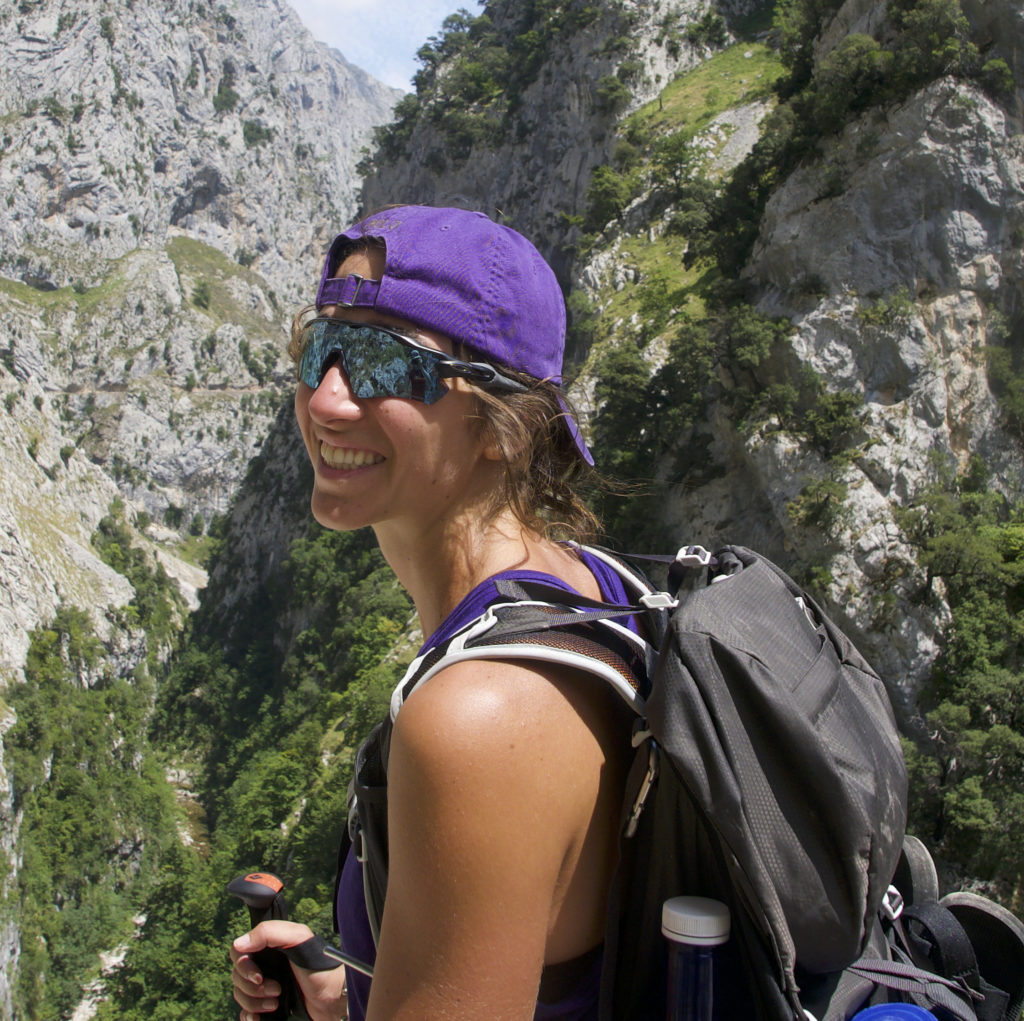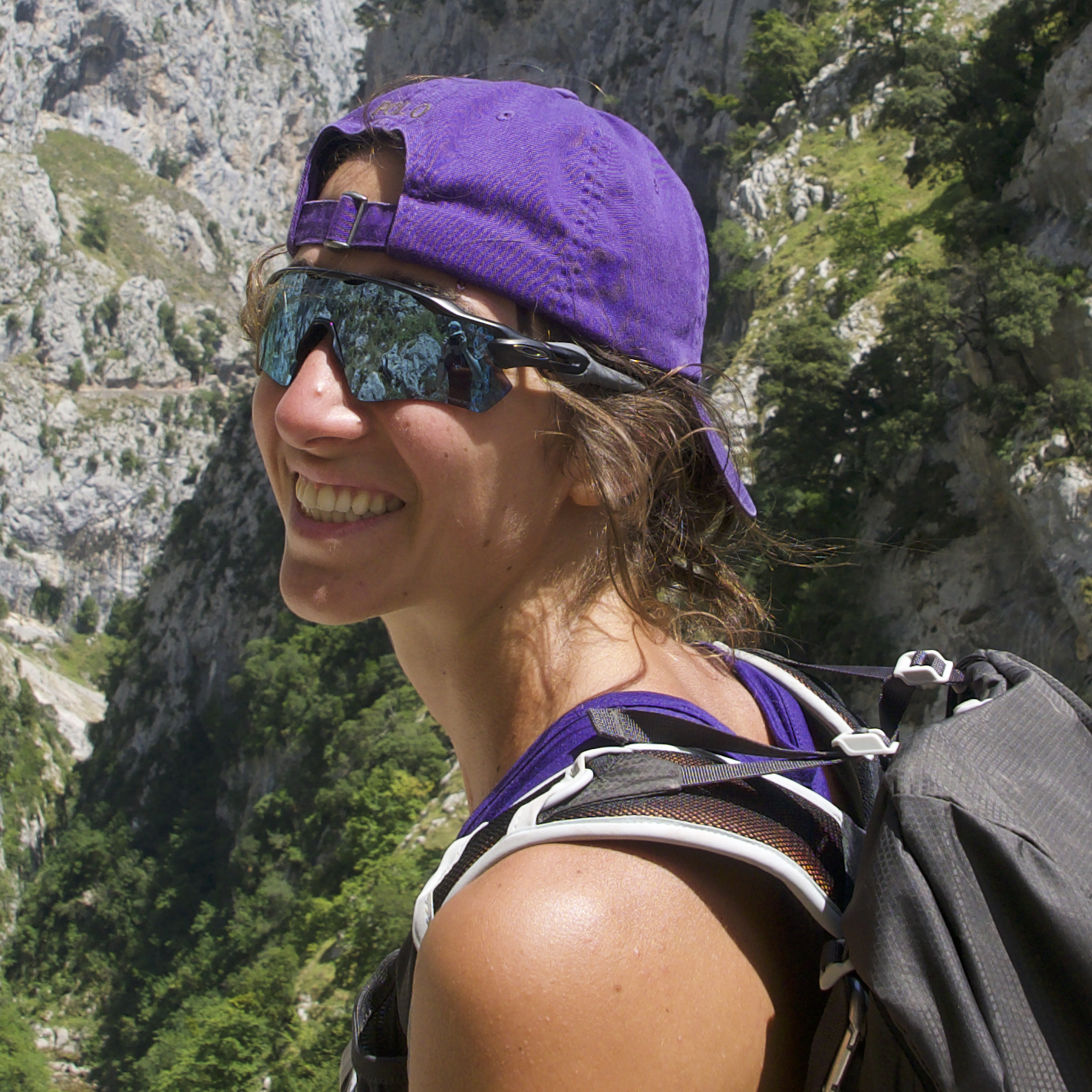FHB interview with ADRIANA PÉREZ ROTONDO
Adriana Pérez Rotondo is the first Spanish woman to have achieved victory in the mythical Oxford-Cambridge university regatta. It was in 2017 when she arrived in the UK and after three years of experience in this country, she encourages all young people to launch their studies outside of Spain and specifically, in the United Kingdom and hopes that in the future she can create sporting events between British and Spanish universities.
IGNACIO RÍO PÉREZ
June 2021
First of all, congratulations on the victory in the most famous university regatta in all the world. How does it feel to be the first Spanish woman to obtain this title so prestigious?
I am very proud to have participated in the race, it has been an incredible experience. It’s a honor having been able to represent Spain by being the first to compete in this event. I hope not be the last Spanish to do so, I would be very happy if my participation inspires others Spanish to do the same.
After a year of pandemic, in which most sporting events have been canceled, what does this award mean in these difficult times that we are living and in these such anomalous circumstances?
Last year was the first time since WWII that the regatta was canceled and it has now been one of the first sporting events to take place after the confinement of January. This means that we have been preparing for this race for two years, eager to compete and win at Oxford. All of this made us feel even more fortunate that we were able to participate in the regatta this year.
We assume that the preparation for this test has been very intense, how has it been combine the studies with the preparation of the same and at what moment did your fondness for this sport?
The preparation for the Boat Race is really intense. We start the season in September
and the process is very competitive. Approximately 30 athletes perform and in April only 9 are selected for the first ship and another 9 for the second. We train every day with a total of 12-14 sessions per week. That’s almost the same number of hours as a team national, but with the difference that we have to combine training with studies. This is one of the characteristics of this regatta, it is a university competition, all the participants are students and athletes.
To combine training with studies, we woke up at 5 in the morning to do a rowing session in the water and start classes or studies at 9. We study during all of the day and at 5 in the afternoon we do our second training session. I started paddling four years ago when I came to Cambridge to do my masters, I had never paddled before. The first year I rowed with the
team from my College, Newnham. I decided to stay here to do my doctorate and that’s when I started training with the university team, competing in the regatta.
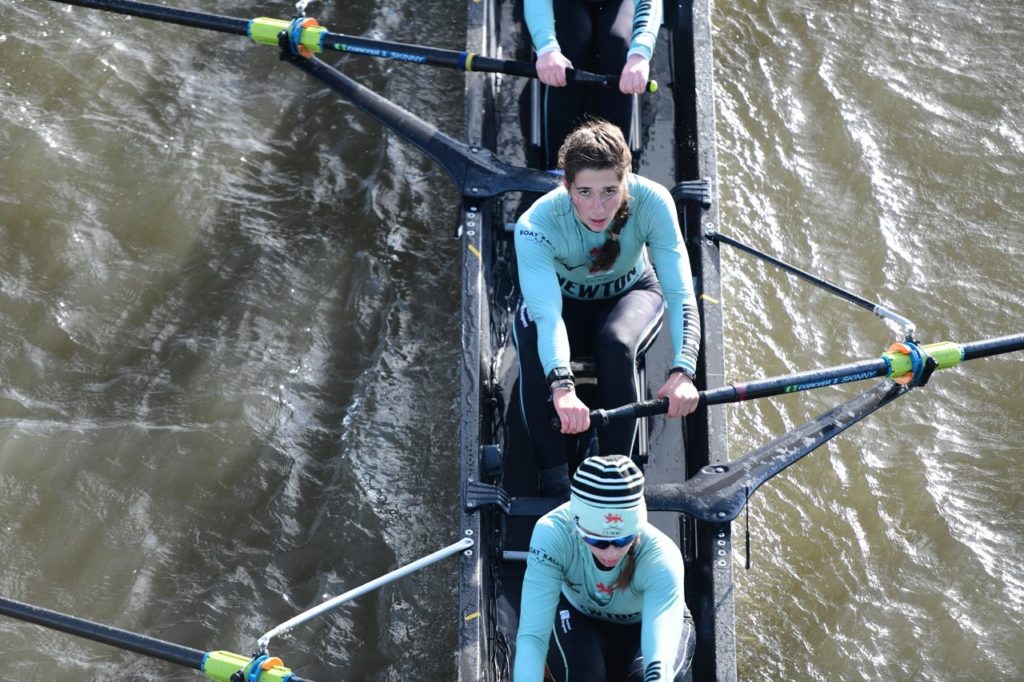
Adriana, the first Spanish champion of the mythical “Boat Race” 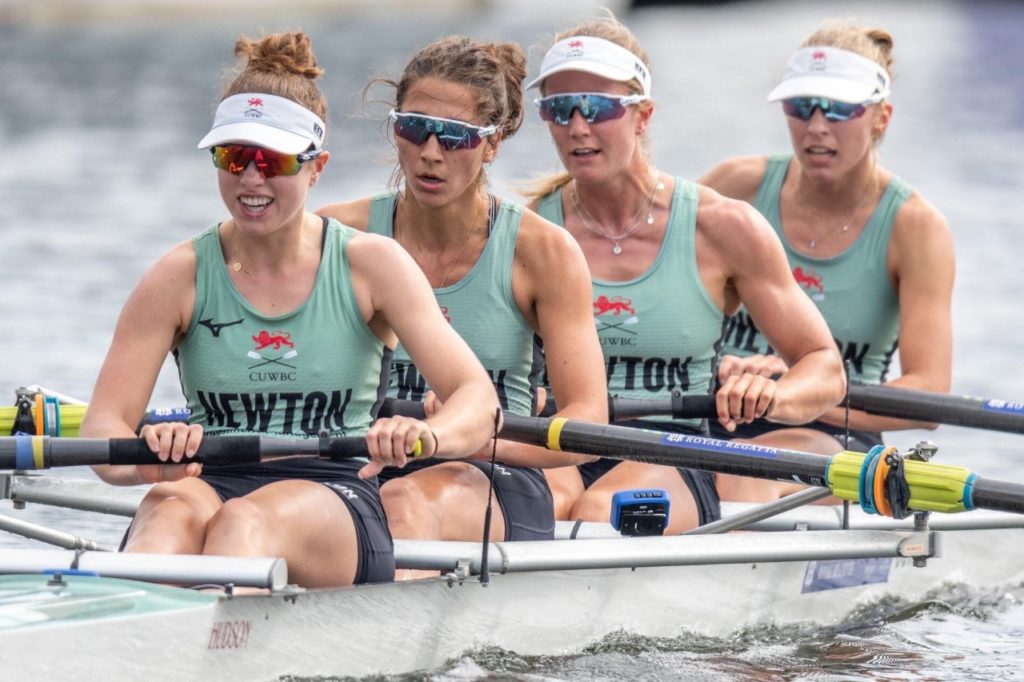
The young “madrileña” with her team
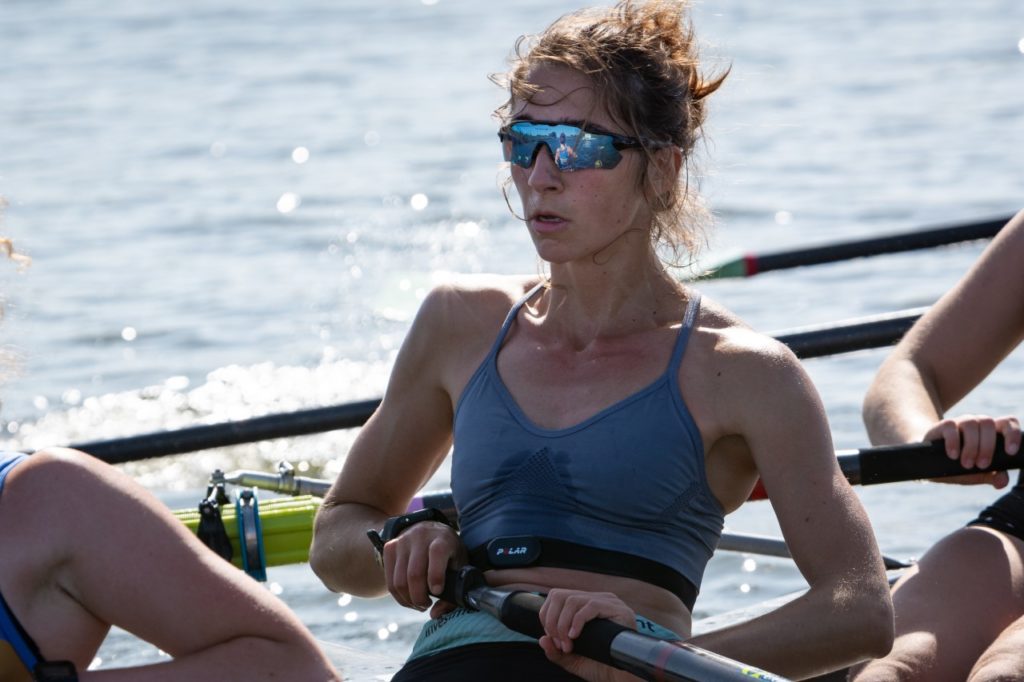
It’s been three years since you embarked on your studies in the UK, was it difficult make the decision to leave your hometown?
The truth is that I have been out of Spain for eight years. I decided to study my career in the United States and then continue my studies in the United Kingdom doing a master’s degree and a doctorate. It was a difficult decision at first but I don’t regret it.
After these years outside of Spain, how would you rate your experience in this time spent in the United Kingdom?
I feel very lucky to be able to study at one of the best universities in the world and to be surrounded by people from all over the world, including Spain. And even though I miss a little bit of the sun and food in Spain, it is a very good experience to live in the UK.
Not everyone dares to take the step of leaving the city in which they have lived their whole life, what would you advise people who hesitate to study outside from your country of origin and specifically, in the United Kingdom?
Do not doubt it. Leaving home, meeting new people, seeing yourself immersed in other cultures is incredibly enriching. And specifically, the United Kingdom is a unique country in its way of combining the most advanced research with tradition in its forms is fascinating.
What are your expectations for the future, do you plan to return to Spain once you finish your studies?
At the moment I don’t have many plans for the future beyond finishing my PhD. I do not rule out going back to Spain at some point.
What would you advise the British Hispanic Foundation to strengthen the relationship between the young people from both countries?
Well, I think that a way to strengthen it would be through the promotion of mutual knowledge of the respective cultural heritages, sports and research. Culture and sport unite and young people around the world are increasingly interested in it. It would be interesting to create sporting events between Spanish and British clubs or universities. It would also be enriching to promote cooperation between academics from the two countries, for example scholarships to write articles or “Papers”. Another option is to organise panels of young Spaniards living in the United Kingdom to young people interested in studying in this country.
